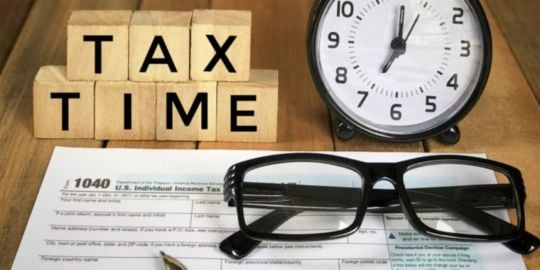Dok kam tai near Phayao. Both my wife and I are on social security and wondering if any Americans know the SS laws moving there. Called different folks at SS and they have no clue, like do we have to visit the American embassy every month being with the visa to live there, if we can send out SS checks to Bangkok bank or not and the Thai's want to see income coming in or have a certain amount in their bank, and just sucks when the people making the rules (SS) can not give answers.
Hate to sell everything here and find out later, the confusing rules on their website messed things up.
Thank you for a response or link to explain SS in Thailand.
Gino
Going to move to Thailand this year
I think you really have to contact social security in the US (The Thai government certainly won't provide you with any) and go from there.
I don't know how much social security you get, or how old you are, but simply 'upping sticks' and moving to Thailand can be difficult - they specify minimum monthly income/bank balances in order to get visas. The visas only last for one year and then you need to extend them, and demonstrate the monthly income/bank balance again. Clearly if the US will not provide you with social security if you leave the country, you will have trouble moving to Thailand.
My Thailand Blog
Thanks for answering. Got plenty of money in 401k to keep in Thai bank and a lot more every month from 2 retirement and 2 social security checks. Already built a beautiful home there. Wife is Thai and an American citizen.
I believe I found my answer here.
http://www.associatedcontent.com/articl … html?cat=3
Sorry this info is a bit late, only just found this blog last night.
The basic entry/visa types of interest to most readers are listed below. For full information you may want to read the Ministry of Foreign Affairs Website
initially, we will attempt to explain the differences between visas and ‘permission to stay' stamps. These are often confused.
A visa is fundamentally a document (affixed into the passport) issued to a foreigner by the Thai government allowing said foreigner to travel to the Kingdom and normally be granted permission to stay for a prescribed period. Visas can only be obtained outside of the Kingdom from a Royal Thai Embassy/Consulate (usually). A visa has a validity period which denotes the period within which the visa may be used to apply for entry. The validity period is NOT the length of time you will be permitted to stay in the Kingdom using said visa. Exceptionally, when an applicant meets the requirements for an annual extension of stay, a change from tourist visa or visa-exempt status to a non-immigrant visa can be obtained from an immigration office preparatory to the extension of stay.
A ‘permission to stay' stamp is entered into your passport upon arrival into the Kingdom. Whatever visa you hold, you will always receive this stamp. It will include the date of entry and date when you MUST leave the Kingdom or make alternative arrangements. The ‘length of stay' will be dependent on what type of visa one holds. Once inside the Kingdom, this stamp is sacrosanct, your visa is now effectively irrelevant until you re-enter the country.
30 day entry stamp: for the majority of passport holders, this is a 'permission to stay 30 days' stamp only obtained (free of charge) at a port of entry into the Kingdom and is issued without the need for a visa. At the discretion of the immigration officer this may be extended for up to 7-15 days at an immigration office after which time the holder must leave the Kingdom. This is NOT a visa.
3 month validity, single entry tourist visa: pre-obtained at a Royal Thai Embassy/Consulate and will result in the holder obtaining a 60 day 'permission to stay' stamp upon entry. If required, this type of visa may be extended by 30 days at an immigration office, but after that time the holder must leave the country. After one entry, the visa is “used”.
6 month validity, 2 to 4 entry tourist visa: pre-obtained at a Royal Thai Embassy/Consulate and will result in the holder obtaining a 60 day 'permission to stay' stamp upon entry if from a 30 day visa exempt entry country (listed below) or 30 days if not. If required, this type of visa may normally be extended by 30 days at an immigration office, but after that time the holder must leave the country. The holder may then return to the Kingdom and will obtain a second 60 day 'permission to stay' stamp which can also be extended as previous and then the holder must leave. After the stipulated number of entries the visa is “used”.
3 month validity, single entry non-immigrant visa: pre-obtained at a Royal Thai Embassy/Consulate and will result in the holder obtaining a 90 day 'permission to stay' stamp. This visa can be extended up to one year for specific reasons and with the required documentation (see 12 month extensions).
12 month extension to a non-immigrant visa: If you are holding a non-immigrant visa, you have the option of extending this by 12 months based on either retirement (50 years old or over) or support to a Thai citizen, work, education and such. This may only be accomplished at an immigration office inside the Kingdom and certain criteria have to be met. Such extensions consist of a stamp in your passport detailing “issue date” and “permitted to stay until” date.
Note 1: If you are residing in the Kingdom under an extension to a non-immigrant visa and wish to leave the Kingdom at any time, then you will need to obtain a “re-entry permit” to avoid losing the extension and the subsequent need to re-apply (i.e. applying for a new non-immigrant visa and then extension of stay).
Note 2: If you are residing in the Kingdom under an extension to a non-immigrant visa it is a legal requirement that the holder reports current address to an immigration office using form TM.47 (in person or by registered mail) every 90 days. Re-entering the Kingdom is the equivalent of a 90 day report.
Note 3: If you are in possession of a valid tourist visa or a 30 day visa exempt entry stamp and qualify for extension of stay and plan on doing so, you may be permitted to change to a non-immigrant visa at an immigration office inside Thailand. This change of 'status' has certain restrictions depending on your particular circumstances therefore you should check with an immigration officer first.
The information given above is for guideline purposes only. Each individual's circumstances may differ to such an extent that a definitive description of the procedures involved is virtually impossible to present. And, the final decision on visa application/issue or entry into the Kingdom will always be at the discretion of the immigration officer.
Check out: www.mfa.go.th for more help, By the way, I didn't write all of the above.
Good luck.









